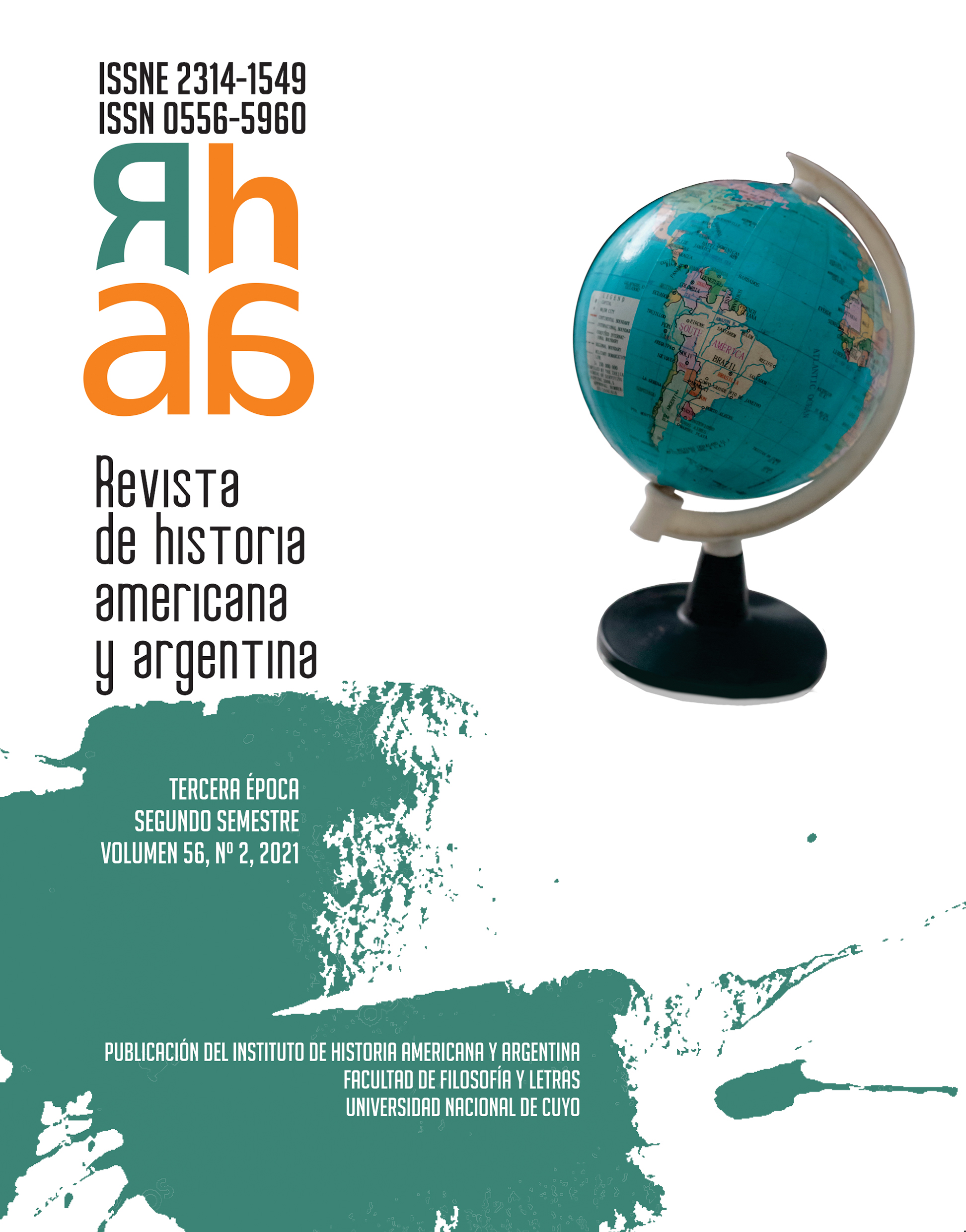The Relations between the United States and Ecuador in the field of Security during World War II
DOI:
https://doi.org/10.48162/rev.44.015Keywords:
Ecuador, United States, nazism, international security, international relationsAbstract
The first joint activities between Ecuador and the United States in the field of international security took place in ecuadorian territory during WWII. This is a novel approach adopted by the americans that has privileged the formation of mixed structures in the realm of international relations. That meant actions such as the control and restriction of the entry of axis nationals to Ecuador, the exchange of information on suspected foreigners working at embassies, the application of intelligence plans like the signal intelligence, FBI agents in Ecuador and the application of a blacklist, among others. Thanks to this new international security approach, the hegemony of the united states would prevail in Latin America and western Europe at the end of WWII. This academic paper has collected first-hand sources from the historical archive of the ecuadorian chancellery. This research aims to identify the causes of the joint activities between Ecuador and the United States in international security issues during wwii through an ir’s theoretical approach.
Downloads
References
Axelrod, R. (1984). The-Evolution-of-Cooperation. Basic Books.
Alcalde Cardoza, J.(1997). La cooperación interamericana durante la Segunda Guerra Mundial y la integración económica continental. Agenda Internacional 4 (8), 63-73. http://revistas.pucp.edu.pe/index.php/agendainternacional/article/view/7180
Becker, M. (2016). La Gloriosa bajo la mirada imperial del gobierno de los Estados Unidos. En S. Cabrera (Ed.) La Gloriosa ¿revolución que no fue? (pp. 153-169). Universidad Andina Simón Bolívar / Corporación Editora Nacional
Dahl, R (1957). The concept of power. Behavioral Science (BS), 2 (3), 201-205. http://dx.doi.org/10.1002/bs.3830020303
Estrada, J. (2006). II Guerra Mundial: Lista Negra en Ecuador. Poligráfica.
Golson, E. (2019). The economics of neutrality in World War II. Vox Eu. Recuperado de https://voxeu.org/article/economics-neutrality-world-war-ii
Hobsbawm, E. (1999). Historia del Siglo XX. Crítica.
Mowry, D. (1989). German Clandestine Activities in South America in World War II. Office of Archives and History National Security Agency/Central Security Service.
Read, J. (2012). Is Power Zero-Sum or Variable-Sum? Old Arguments and New Beginnings. Journal of Political Power, 5 (1), 5-31. https://doi.org/10.1080/2158379X.2012.659865
Stuart, D. (2008). Creating the National Security State: A history of the law that transformed America. Princeton University Press.
Von Clausewitz, C. (1832). Vom Kriege. Clausewitz-Gesellschaft.
Von Neumann, J. y Morgenstern, O. (1953). Theory of the Game and Economic Behavior. Princeton University Press.
Waltz, K. (1979). Theory of International Politics. McGraw Hill.
Lauderbaugh, G (2010). Estados Unidos y Ecuador durante la Segunda Guerra Mundial: conflicto y convergencia. En B. Zepeda (Comp.). Ecuador: relaciones internacionales a la luz del bicentenario, (pp.265-295). FLACSO.
Published
How to Cite
Issue
Section
License

This work is licensed under a Creative Commons Attribution-NonCommercial-ShareAlike 4.0 International License.
Quienes envíen trabajos a la Revista de Historia Americana y Argentina, que edita el Instituto de igual nombre de la Facultad de Filosofía y Letras de la Universidad Nacional de Cuyo (Mendoza, Argentina), otorgan automáticamente licencia no exclusiva y sin límite temporal de su manuscrito a dicha publicación. En consecuencia, como la distribución de la citada Revista no tiene finalidad lucrativa sino académica, el autor (los autores) autoriza(n) a la misma la difusión gratuita en formato impreso y medios electrónicos, tanto en red local como por vía internet.
Se establece que:
- Los/as autores/as conservarán sus derechos de autor y garantizarán a la revista el derecho de primera publicación de su obra.
- Los/as autores/as deben adherir a la la Licencia Creative Commons Atribución-NoComercial-CompartirIgual 4.0 Internacional, mediante la cual el autor permite copiar, reproducir, distribuir, comunicar públicamente la obra sin propósitos comerciales, por cualquier medio o formato. También, se pueden generar nuevas obras derivadas, siempre y cuando se cite y reconozca al autor original y su primera publicación en esta revista.
- Los/as autores/as podrán adoptar otros acuerdos de licencia no exclusiva de distribución de la versión de la obra publicada (p. ej.: depositarla en un archivo telemático institucional o publicarla en un volumen monográfico) siempre que se indique la publicación inicial en esta revista.
- Se permite y recomienda a los/as autores/as difundir su obra a través de Internet (p. ej.: en archivos telemáticos institucionales o en su página web) luego de su publicación, lo cual puede producir intercambios interesantes y aumentar las citas de la obra publicada. (Véase El efecto del acceso abierto).

































